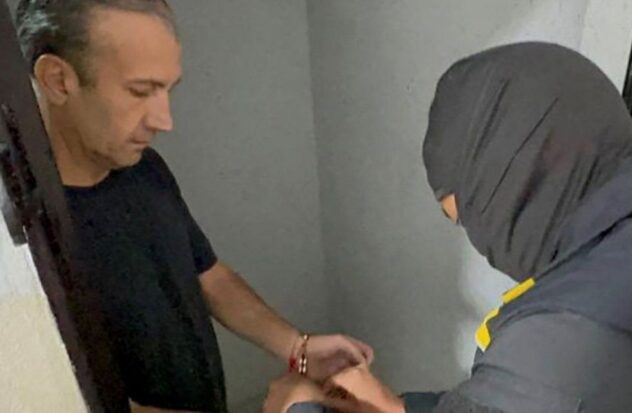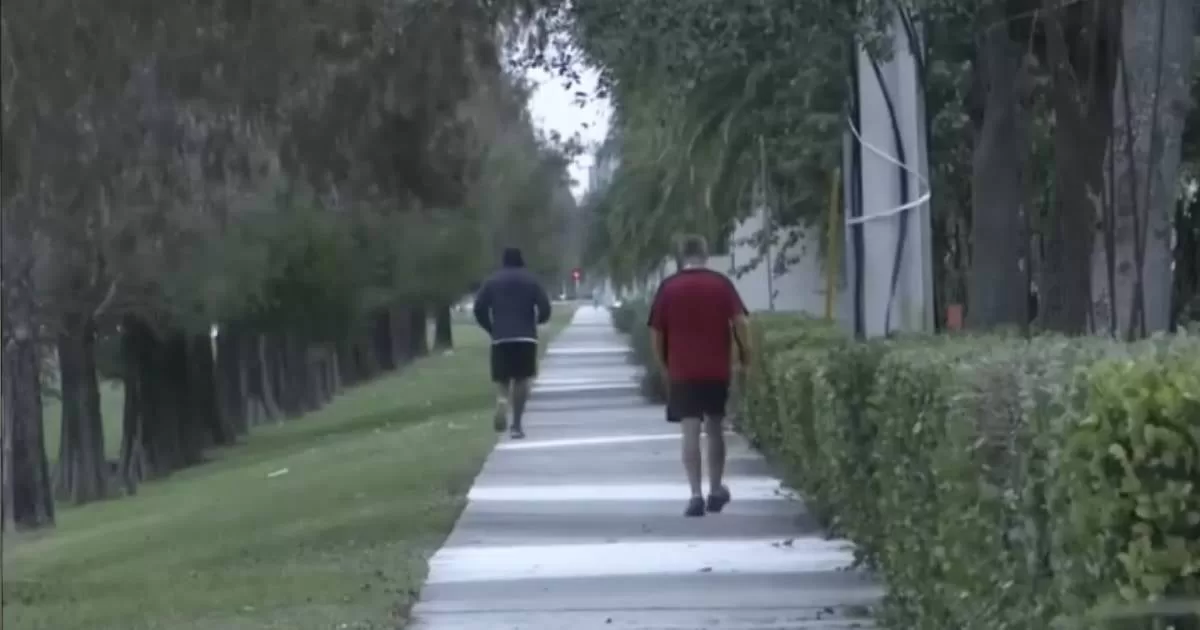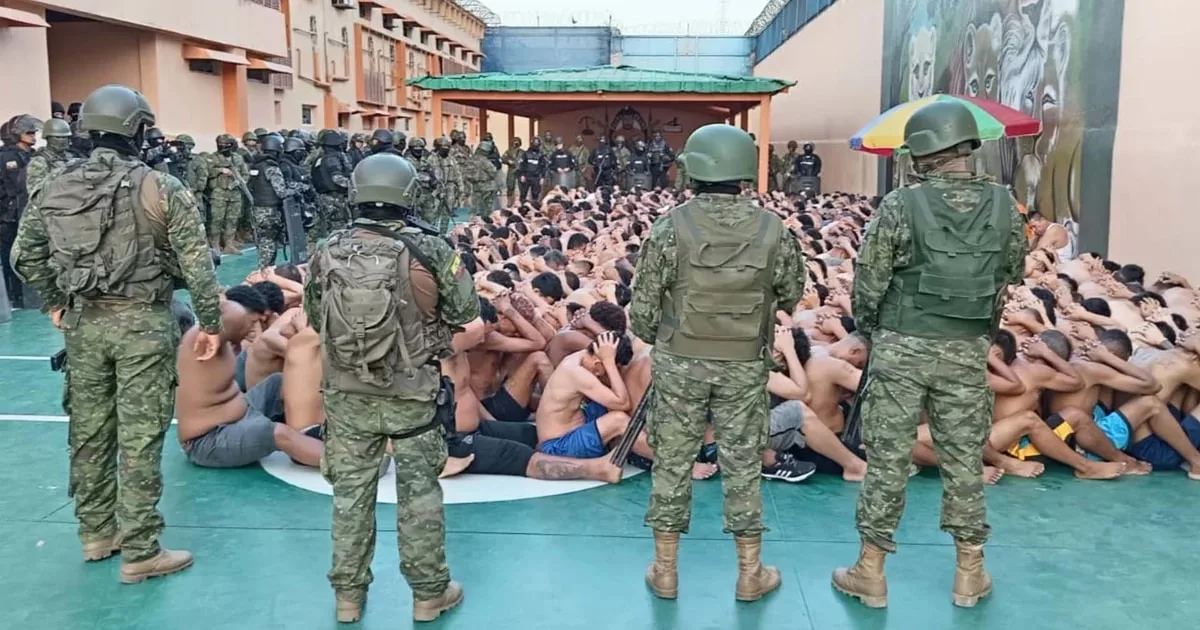The last quantified amount in this network of corruption was announced by Hermann Escarrá, deputy of the United Socialist Party of Venezuela (PSUV) on March 24 when he said that the embezzlement would reach 23,000 million dollars.
Although it is difficult to track the money, those involved can hand over “their private key” to their digital wallets. to recover the money converted into cryptocurrencies. And then track where the funds were transferred, if that was the case, Tal Cual said in a report.
While the portal AntilavadoDinero He emphasized that tracking and then recovering public money related to corruption and money laundering is an arduous task, since the procedures used usually do not leave traces. But it is not impossible because having a good team you can get to the bottom of it.
“To recover the assets involved in acts of corruption and money legitimization, a trace is carried out from where the money leaves and to where it arrives, which generally go to countries considered tax havens. In the Venezuelan case, a good part of the assets are located within the country and the same amount is outside the local financial system and far from the Nation’s coffers. That is why we must start at home,” said Mercedes De Freitas, director of the NGO Transparencia Venezuela.
Despite this experience with digital currency, Reuters recently reported that the change in cryptocurrencies is accelerating as oil sanctions return. That is, PDVSA plans to increase the use of digital currency in its crude oil exports, again.
Pending receivable
On March 21, 2023, this news agency revealed that $21.2 billion from the last 3 years were pending collection. At that time, Tareck El Aissami, who had resigned from his position as Minister of Petroleum, said that he would collaborate with the investigation.
According to the agency, these invoices were linked to oil tankers who left the country without paying in advance. at least part of the value of the shipments, even though the customers had accepted those terms. Of that amount, $3.6 billion “were potentially unrecoverable.”
Resources involved
Transparency Venezuela emphasized in its most recent report presented by Mercedes de Freitas and which refers to the fact that a year has passed since the plot and the Public Ministry has not yet reported the amount of resources associated with this corruption scheme. In her opinion it is the largest corruption plot in the country.
Consider that “the patterns or mechanisms of corruption are the same: bribes, overpricing, extortion“taking advantage of confidential or privileged information to do business and hire friends,” she said when asked about corruption in general in Venezuela.
According to calculations of Transparency Venezuela and Ecoanalítica, referred to by De Freitas, with this last network discovered, $16.96 billion were committed. However, the figure from Hermann Escarrá, from the official party, resonates with Venezuelan public opinion: $23,000 million.
With the PDVSA Cripto plot, named after the Venezuelan Public Ministry, the handling of billions of dollars was evidentof which a large part was transacted in cash and through the cryptocurrency system.
“If something is clear with the government’s new revelations about the corruption and conspiracy plot of Tareck El Aissami and his combo, it is that Maduro is reeling hand in hand with his own people, who are incapable of maintaining monolithic unity around his proposal, which only through repression maintains the government and that, just as Muller Rojas told Chávez that he was sitting in a nest of scorpions, Maduro is not only surrounded, he sleeps and feeds them permanently,” said the political scientist. Nicmer Evans on his social network X.
A framework in ship assignment
The framework, with Tareck El Aissami at the head, consisted of assigning ships with oil at discretionfuel oil and coke, to a group of businessmen who, in addition, had to pay a commission of between 15% and 30% to maintain business with PDVSA and the Venezuelan Corporation of Guayana, as indicated by the official prosecutor Tarek William Saab.
Dividends were converted into cryptocurrencies through platforms such as Kraken Crypto Exchange. According to the Prosecutor’s Office, the operation was undetectable for the supervision and comptroller agencies. A parallel office called the Special Work Unit was even created with the aim of hiding the accounts, recalled the NGO Transparencia Venezuela.
Second phase of research
Prosecutor Tarek William Saab assured that they are in the second phase of investigationsin which five witnesses have collaborated to determine the role of senior officials and businessmen in a plot that, according to their statements, has been difficult to reveal due to the use of crypto assets as a tool “to cover up the crime.”
Although Saab assured that El Aissami was captured shortly before his statement on April 9, 2024, the former official had not appeared publicly for more than a year.
According to the Prosecutor’s Office, PDVSA managers not only sold crude oil at 50% of the real price and they charged commissions to assign the loads, they also required contractors to remodel offices or residences, deliver properties and acquire certain goods such as airplanes or yachts, in exchange for maintaining the contracts.
They link opponents
The Chavista prosecutor alluded to Venezuelan opposition figures and assured that in agreement with the United States and former minister El Aissami, they planned to “dissolve the State by any means.”. He also said that the objective was to “implode” the economy, “destroy” the national currency – the bolivar and “make the economic policies promoted by the Executive fail” (headed by Nicolás Maduro).
Tarek Saab mentioned the opponents Leopoldo López, Julio Borges Carlos Vecchio and Carlos Ocariz and accused them of being part of a political conspiracy linked to the “PDVSA-Cripto” plot, however these leaders deny these versions. Leopoldo López from Madrid made statements in this regard.
Source: TRANSPARENCY VENEZUELA / AS IS / AFP /AP / RED SOCIAL




